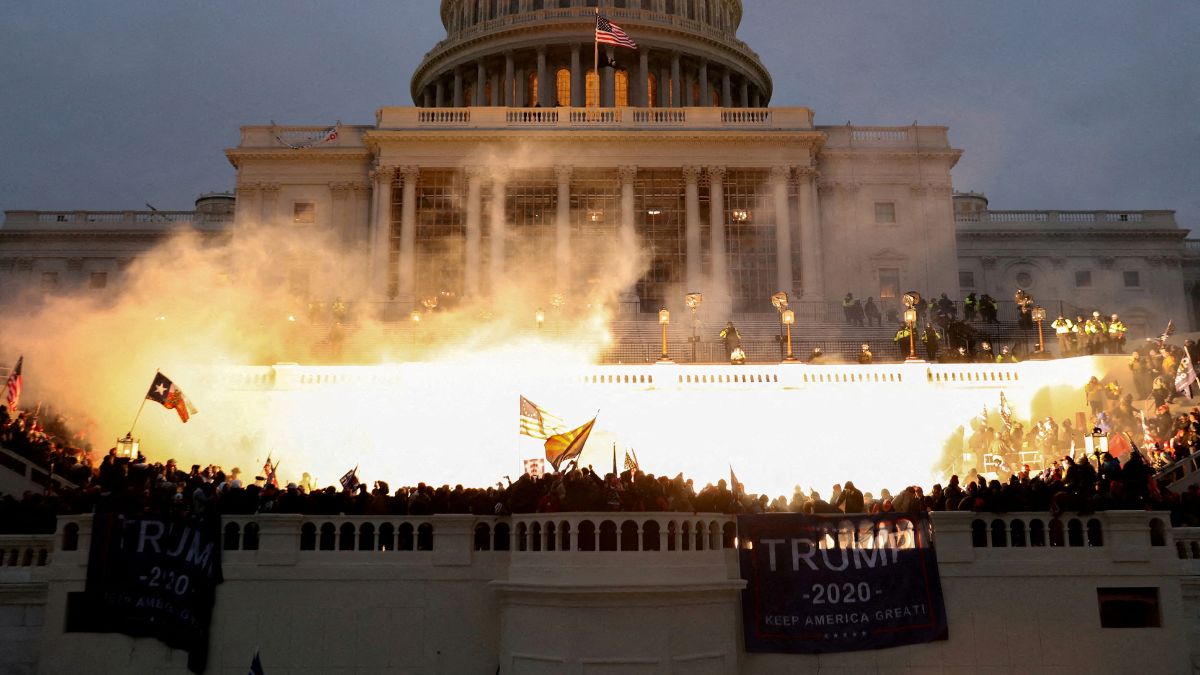As United States President-elect Donald Trump prepares to return to the White House, speculation mounts over his promise to grant clemency to those convicted in the January 6 Capitol riots.
Trump has repeatedly committed to granting clemency for January 6 defendants, pledging to address what he characterises as a politically motivated “weaponisation of justice” by the Biden administration.
During a CNN town hall in 2023, an audience member asked Trump, “Would you pardon the January Sixth rioters that were convicted of federal offences?” Trump replied, “I’m inclined to pardon many of them.”
He reiterated this stance in Chicago, saying, “Absolutely I would,” when asked by ABC’s Rachel Scott if he would pardon individuals convicted of assaulting officers. Trump qualified his statement, adding, “If they’re innocent, I would pardon them,” to which Scott countered, “They’ve been convicted.” Trump responded, “Well, they were convicted by a very tough system.”
Trump’s campaign has upheld this promise, stating that pardons would be assessed “on a case-by-case basis.” Campaign spokesperson Steven Cheung reflected Trump’s determination to “end the weaponisation of our justice system” following his election victory, an idea Trump stated in his victory speech, calling for national unity and the restoration of justice.
Where has the January 6 attack prosecution reached?
As of recent figures, more than 1,530 people have been charged with crimes connected to the January 6 attack, and approximately 1,200 have either pleaded guilty or been convicted. Over 600 individuals have been sentenced to incarceration, with roughly 570 facing charges for assaulting or resisting law enforcement.
The offences range from minor misdemeanors, such as trespassing, to serious felonies like seditious conspiracy, which was used to convict prominent group leaders, including Stewart Rhodes of the Oath Keepers and Enrique Tarrio of the Proud Boys.
In addition to Rhodes and Tarrio, others charged have received substantial sentences. Joe Biggs, another Proud Boys leader, was sentenced to 17 years for crimes including seditious conspiracy, threats to officials, and interference with law enforcement.
At trial, Biggs argued that he was following Trump’s orders, with his lawyer Norman Pattis stating his intention to seek a pardon from Trump.
How did the January 6 defendants react to Trump’s win?
With Trump’s anticipated clemency in the spotlight, many January 6 defendants and their legal teams are actively seeking trial delays in hopes of receiving pardons. Some defendants have already petitioned courts to postpone sentencing, citing Trump’s potential for intervention.
North Carolina defendant Christopher Carnell, and Jonathanpeter Klein both requested delayed sentencing, though their appeals were denied, reported BBC.
WATCH | Trump calls Jan 6 ‘day of love’ when supporters ran riot at Capitol
Trump’s campaign promises have been met with enthusiasm among those convicted. Adam Johnson, known as the “Lectern Guy” after posing with then Speaker Nancy Pelosi’s podium, celebrated on social media, posting, “I. Want. My. Lectern.”
Jenny Cudd, another participant, posted, “We won it all! Yay God! We, J6ers, are getting pardons!” Further, Jake Lang, who faces charges for assaulting officers, wrote on X (formerly Twitter), “IM COMING HOME!!!! THE JANUARY 6 POLITICAL PRISONERS ARE FINALLY COMING HOME!!!!”
Lang referenced Trump’s inauguration date, January 20, 2025, as the moment he believes pardons will be issued.
Will Donald Trump pardon the January 6 defendants?
Trump’s potential mass pardon of January 6 defendants would constitute the largest since US President Biden pardoned individuals with federal marijuana offences in 2023. Legal experts note that presidential pardons, while absolute once granted, are discretionary.
Trump has a history of controversial pardons from his first term, often bypassing the standard Justice Department review process and focusing on individuals with personal or political ties, including Paul Manafort, Roger Stone, and Michael Flynn.
The potential for broad pardons has generated significant concern among advocacy groups and legal observers. BBC quoted Wendy Via, co-founder of the Global Project Against Hate and Extremism (GPAHE), who warned that widespread clemency could “make a mockery of our justice system” and embolden violence in political disputes.
Via reported that some extremist groups are advising members to remain quiet until Trump’s expected pardons, suggesting they avoid the January inauguration but celebrate locally.
Despite optimism among some defendants, not all expect sweeping pardons. Non-violent offenders like Derrick Evans, a former West Virginia state delegate, have pushed for broad clemency but expressed that pardons alone might not suffice. “I think there needs to be some reparations and restitution involved as well,” Evans stated.
As the country awaits Trump’s inauguration, officials continue prosecuting what they view as “the most egregious” January 6 cases, with the FBI still seeking nine suspects for violent acts against police officers.
Also Read | Climate action, aid for Ukraine: Why the last days of the Biden presidency matter
With inputs from agencies


)

)
)
)
)
)
)
)
)



